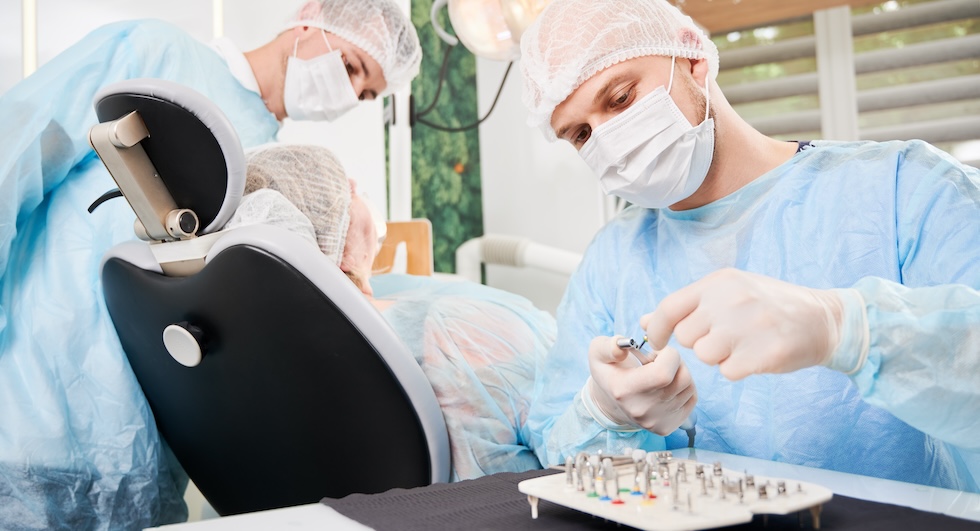If you are about to screen for HIV, it is obvious to have the concerns regarding receiving an incorrect report. With the number of HIV testing methods, there is no chance of wrong diagnoses. However, it can occur if you are delivered with false-negative or false-positive result of HIV.
However, a number of tests are there for accurate diagnosing of HIV. Both a negative report and a positive report of the initial HIV test needs confirmation by a follow-up test. This post deals with the lesser-known facts you should know regarding the accuracy of HIV test. Read on to know.
How Much Accurate Are HIV Tests?
Nowadays, HIV tests are incredibly accurate but it is completed based on certain aspects. They are mentioned below:
- The test type you have preferred
- How fast you get tested after getting HIV exposure
- How the individual’s body responds to the virus of HIV
On being contracted with HIV in its initial days, the infection is represented as acute. In this phase, it is almost impossible to detect its presence. Gradually over time, as it will become chronic it can be easily detected and diagnosed with the tests. Every HIV test possesses a specific “Window Period”.
It is referred to the time period in-between a person gets exposed and the virus produces enough antibodies. If the test is done prior to the completion of window period then, the report is much likely to come as false-negative.
Performing the tests on completion of the window period heightens the chance of offering more accurate results. However, some HIV tests have shorter window period and hence they can be detected easily and soon after getting exposed with this virus.
What False-positive Results Refer to?
False-positive result refers to the report when it states that a person is HIV-positive when in reality the person isn’t! Several reasons are there underlying the false outcomes of the report. The most common amongst them is improper handling of the test sample and mislabelling of the sample by the laboratory staff.
If someone misinterprets the report of the test then, it can happen too. Furthermore, if the person possesses other potential medical conditions this can also result in false outcome.
So, it is highly advisable to discuss with your healthcare provider if your first HIV test refers you as positive. Follow-up testing will be only ordered by the healthcare provider as it will let them to know whether the report is completely false or 100% accurate.
What False-negative Results Refer to?
The false-negative report refers to the people with HIV infection identified as negative after being tested. Though both reports are rare yet false-negative reports are much less likely to occur. Basically, it is commonly occurred when a person undergoes testing too early of exposure.
Accuracy of HIV tests is entirely based on the window period you offer to the immune system to generate enough antigens and antibodies.
However, window period also varies on the type of tests you are going to perform. If you are screened after 3-month of getting exposed and found as negative you are advised to get tested again after a couple of months.
But for antigen/antibody test you can undergo retesting much faster within 45days of suspected HIV exposure. It will help your healthcare provider to know whether the first report was false negative or accurate.
Availability of Various HIV Tests
A number of tests are available to detect HIV. But each of its type is looking for varied signs of the infection. Yet there are a few tests which can detect the presence of HIV infection sooner in contrary to others.
Antibody Tests
Most of the HIV tests are antibody tests and when the human body gets exposed to this virus, its immune system starts producing antibodies. The HIV antibody test is reliable in detecting these HIV antibodies present in the saliva or blood. After getting infected, human body needs some time for producing enough antibodies so that it can be detected in the antibody test.
Detectable levels often attained within 3-12 weeks of getting contracted with the infection yet the time period can be longer too for some persons. Some antibody tests are performed by drawing blood samples from the person’s veins. The reports of such HIV blood tests will take some time to get delivered as the sample will be examined in the lab.
Certain antigen tests are performed by collecting saliva or blood via finger pricking. Even these samples can be utilised for the rapid HIV test in the home or at the clinic. If it is rapid test, then you can get to know about the report within 20 minutes.
However, in comparison to the test done by saliva or finger prick, test of intravenous blood helps in the HIV detection faster and more accurate.
Antibody/Antigen Test
Fourth generation or combination test is another name of the HIV antigen/antibody tests. It detects HIV infection by tracing the proteins so-called antigens of HIV along with its antibodies. Once a person gets exposed to HIV, the virus will produce the p24 protein much before the production of antibodies by the immune system.
This is why the antigen/antibody test traces the infection accurately much before the antibody test. p24 antigen needs 6 weeks to reach the detectable levels after the exposure for most of the people. However, this window period can be much longer for some people too at the same time.
Blood sample needs to be drawn from the body of the patient by the healthcare professionals to send it to the lab for analysing. A couple of days may require for the reports to come.
Nucleic Acid Test (NAT)
The HIV Nucleic Acid Test (NAT) is also referred to as the HIV RNA test. It is helpful in detecting the genetic material in the virus presence in the blood. NAT is excellent in tracing the virus much before the antibody/antigen or an antibody test can.
However, a majority of people reach the detectable levels on completing 28 days of being exposed to this infection. But unfortunately, NAT is quite pricey and so it is not used as the routine HIV screening test. It is only suggested to the people who are identified as HIV-positive in the antigen/antibody or antibody test.
It is also recommended to the persons who have a high-risk of current exposure or experiencing symptoms of acute HIV. But it is not ideal for the individuals who are taking PEP (post-exposure prophylaxis) or PrEP (pre-exposure prophylaxis) as it lowers the NAT accuracy. Hence, you should share about these to your healthcare provider.
Should a Person Get Tested?
Healthcare provider asks the individuals for HIV screening as a part of their routine STD testing check-up. Even as per the top medical experts, the persons aged within 13-64 must get screened once a year. But the people who are much more likely to develop this infection should get tested often.
Though the interval is determined by the doctors yet twice or thrice a year is commonly advised. You must talk with your healthcare provider to know the right interval for you to get screened for HIV.
What Can Be Happened if a Person is Found Positive?
If the initial HIV test recognises you as HIV positive, then healthcare provider will suggest the follow-up test to check whether the report is accurate or not! In case you have tried out the first test at your home, then blood sample will be drawn from your body to analyse it in the lab.
But if you have used search string- “STD clinic near me” to perform the test then, same blood sample will be used for the follow-up testing. If positive outcome comes from the second test then treatment options of HIV will be offered by the healthcare provider.
Early detection is reliable as the patient can receive the early treatment which will improve the quality of life by alleviating the risks of emerging further HIV complications.
There is a pale chance of misdiagnosing of HIV! It is only happened in case a person receives false-negative or false-positive HIV test report. Thus, you are advised to talk with your healthcare provider.
They will assess your same day HIV testing reports and essential steps will be recommended to your accordingly. If you are at high risk of HIV contraction, your healthcare provider will disclose the key strategies to alleviate its risk.

















Add Comment